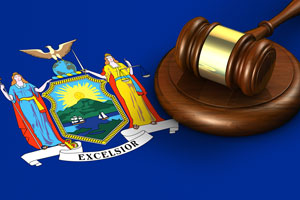Thomas Tornatore sued his chiropractor for malpractice. A New York jury determined that the chiropractor, Dr. Jean Cohen, was responsible for Tornatore’s injuries. A portion of the jury’s award of damages covered future life care expenses.
Tornatore presented an expert in life care planning to testify about his future life care expenses. The trial court rejected Dr. Cohen’s challenge to that testimony. The Appellate Division affirmed the trial court’s decision.
Life Care Plans
Attorneys for victims of permanent or long-term injuries use life care planning experts to determine the future expense of coping with a disabling condition. A life care plan considers all of the injury victim’s future needs that arise from the injury, including future medical treatment, rehabilitative therapy, medical equipment and supplies, and medications.
Life care plans assess the injury victim’s ability to live independently in the future. They consider whether the injury victim will need a caretaker or home health aide to assist with the activities of daily living as well as other tasks. A life plan considers whether and when the injury victim will need to reside in an assisted-care facility. If the injury victim’s mobility has been compromised, the life plan will consider the kinds of transportation assistance that the victim will require.
After gathering that information, a life planning expert then determines the accident victim’s life expectancy and investigates the cost of providing for future needs over the course of the victim’s remaining lifetime. All of that information is then presented in a report that becomes the basis for the expert’s testimony.
Expert’s Methodology
The expert in Tornatore’s case testified that he followed the methodology customarily employed by life planning experts when they develop a personal care plan. He reviewed medical records to glean an understanding of the recommendations made by Tornatore’s treatment providers. He interviewed Tornatore about his work history, injuries, and treatments. He assessed Tornatore’s level of independence before and after his injuries.
After determining Tornatore’s future healthcare needs, the expert researched the ongoing cost of coping with Tornatore’s injuries. He consulted a medical costs database in arriving at his conclusions. The expert then prepared a life care plan and reviewed its elements with Tornatore’s treating physician before finalizing his report.
Expert’s Reliance on Hearsay
Dr. Cohen moved to strike the testimony of the life care planning expert on the ground that she based her opinion on hearsay statements made by Tornatore’s treating physician. New York follows the general rule that experts must base opinions on facts that have been admitted into evidence or that are within their personal knowledge.
New York also follows the general exception to that rule that allows experts to rely on facts that members of the expert’s profession customarily regard as a reliable basis for an expert opinion. The exception allows experts to consider reliable hearsay when forming an opinion, provided that members of the profession would commonly rely on hearsay of the same nature and that the hearsay is not the sole basis for the expert’s opinion.
Applying that rule, the Appellate Division had no difficulty determining that the life care planning expert was entitled to rely on hearsay in forming his opinions. The information the expert obtained from Tornatore’s physician about Tornatore’s future medical needs was hearsay, but life care experts routinely rely upon medical opinions when they form a life care plan. The expert’s opinions were not based solely on information provided by the physician, as the opinions were only a link in a chain of reasoning that included reliance on a medical costs database, information provided by Tornatore, and the expert’s own experience.
Reliability of Expert’s Testimony
Dr. Cohen objected that the expert opined that Tornatore would require greater care in the future than he received in the past. Since the expert explained the basis for his opinion, Dr. Cohen’s objection went to the weight the jury should give the opinion, not to its admissibility.
Finally, Dr. Cohen complained that certain medical information relied upon by the expert was outside the scope of the treating physician’s expertise. However, Dr. Cohen did not move to strike the testimony on that ground. Since New York law requires such a motion to preserve the error, the Appellate Division did not address it.




